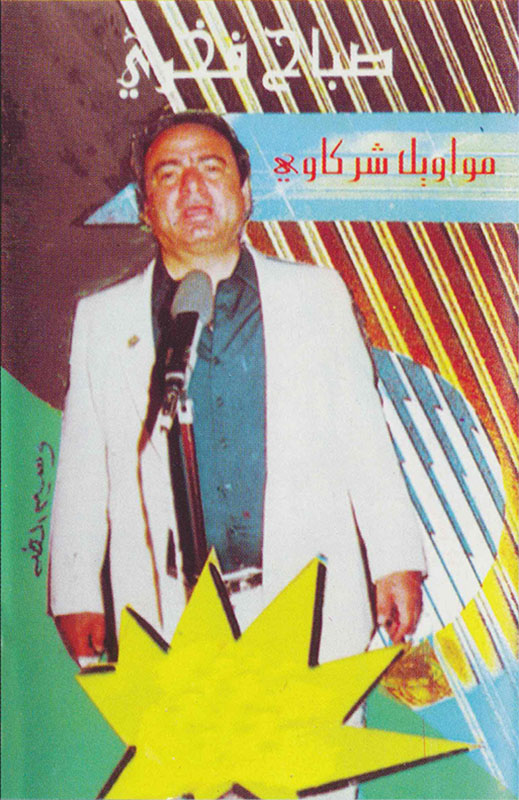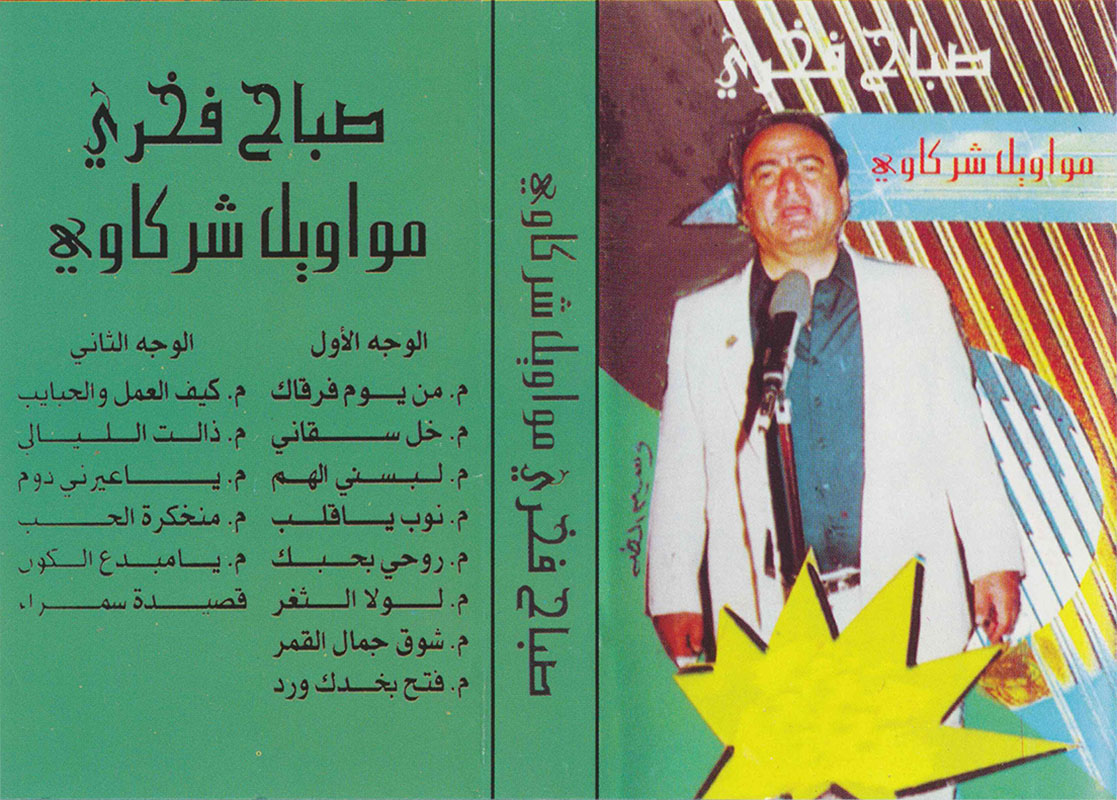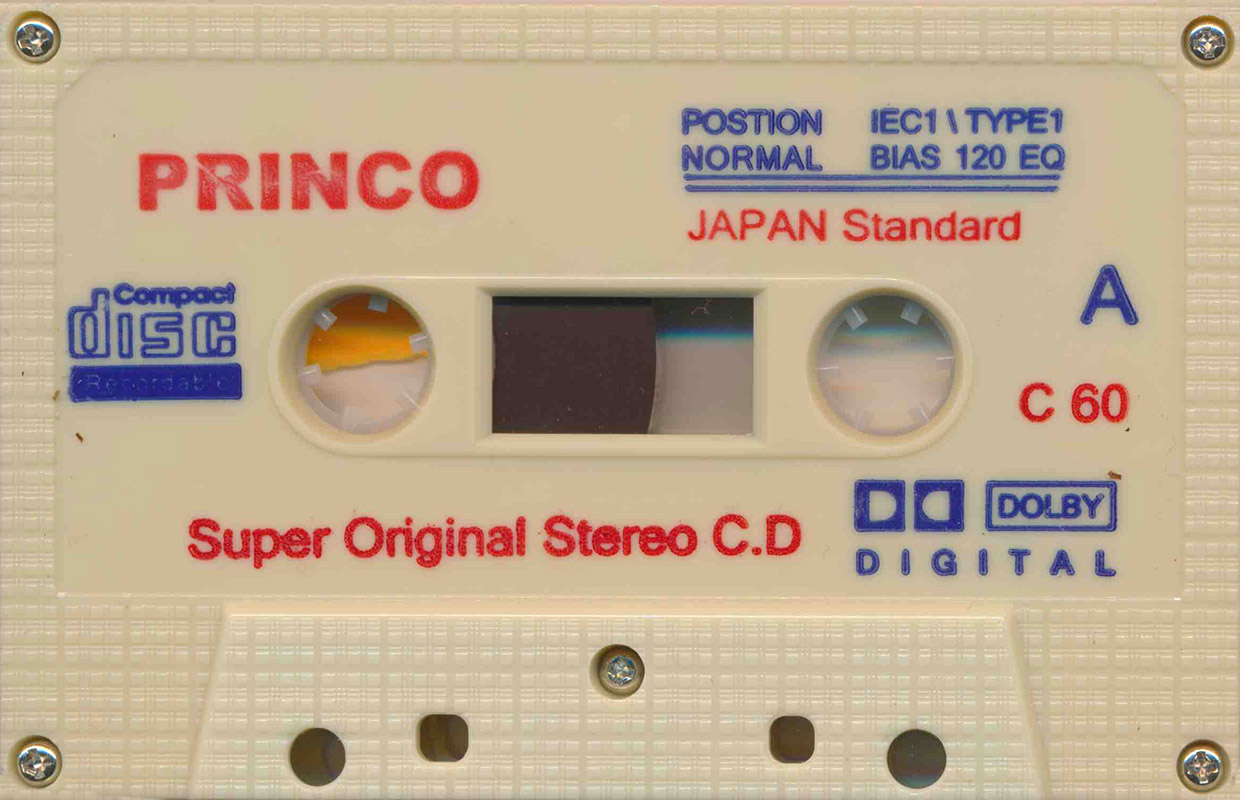


Sabah Fakhri
Mawawil Sharkawi (Eastern Mawal)
SIDE A
- Keef Al Amal Wel Habayeb (How Are Work and Loved Ones?)
- That Al Layali (Once Upon a Night)
- Ya Ibrati Doum (Always My Tears)
- Khamrat Al Hob (The Love Drink)
- Ya Mubde'a Al Kawn (Oh, The Creator of the Universe)
- Kaseedet Samra'a (Dark-Skinned Poem)
SIDE B
- Min Youm Furakak (Since the Day You Left Me)
- Khal El Sakani (The Vinegar He Made Me Drink)
- Lebbisni Al Ham (I'm Surrounded With Grief)
- Noub Ya Kalb (Feel the Sadness, Oh Heart)
- Rouhi Bahebak (My Soul Loves You)
- Lawla Al Thughr (Without the Mouth)
- Shawk Jamal Al Kamar (Longing for the Beauty of the Moon)
- Fattah Bi Khaddak Ward (Flowers Blossomed on Your Cheeks)
Artist Origin
Aleppo, Syria
More Info
In this album, Sabah Fakhri sails on the vessel of Eastern mawawil (plural of mawal, a type of vocal improvisation), with the accompaniment of traditional instruments like the rebab and the reed pipe that evoke the voice of the countryside and the badiah. The album is interspersed with a collection of Sab'awiyya mawawil (seven-line mawawil) that are famous in the heritage of Aleppo. The Sab'awi mawal consists of seven hemistichs: the first, second, third, and seventh lines share one rhyme, while the fourth, fifth, and sixth share another, interweaving classical Arabic with spoken dialects. On the first side of the album, we hear Sabah Fakhri's performance of the Mamluk-era poem "Ja'at Mu'athibati" (My Tormentor Came) by Lisan Al-Din Ibn Al-Khatib. He performs it with a vast, masterful breath and a yearning, anguished voice, doing justice to the emotionally charged words of the poem. As is his habit when performing poems, Sabah chooses a few verses which he continues to revisit and repeat, searching for a different angle each time. Despite the secular nature of the poem, Sabah's performance bears traces of his career in religious chanting, and even traces of his work as a mosque muezzin. Sabah Fakhri (1933-2021) is celebrated as one of the greatest singers in Arabic music of the 20th century. Born in Aleppo, Sabah studied there at the Academy of Arabic Music and later in Damascus, graduating in 1948. Fakhri was known for his powerful vocals, precise control of musical scales and harmony, and captivating stage presence. He famously presented traditional Arabic music forms such as qudud and muwashahat to the world on the stage, television and radio during a career that spanned more than 50 years. His popularity extended beyond Arabic-speaking countries to Europe, Asia, the Americas, and Australia, where he sang exclusively in Arabic. He even set a Guinness World Record for singing continuously for 10 hours in Caracas, Venezuela. Unlike many other Arab artists, he never relocated to Cairo – believing that his fame was tied to Syria's artistic heritage.